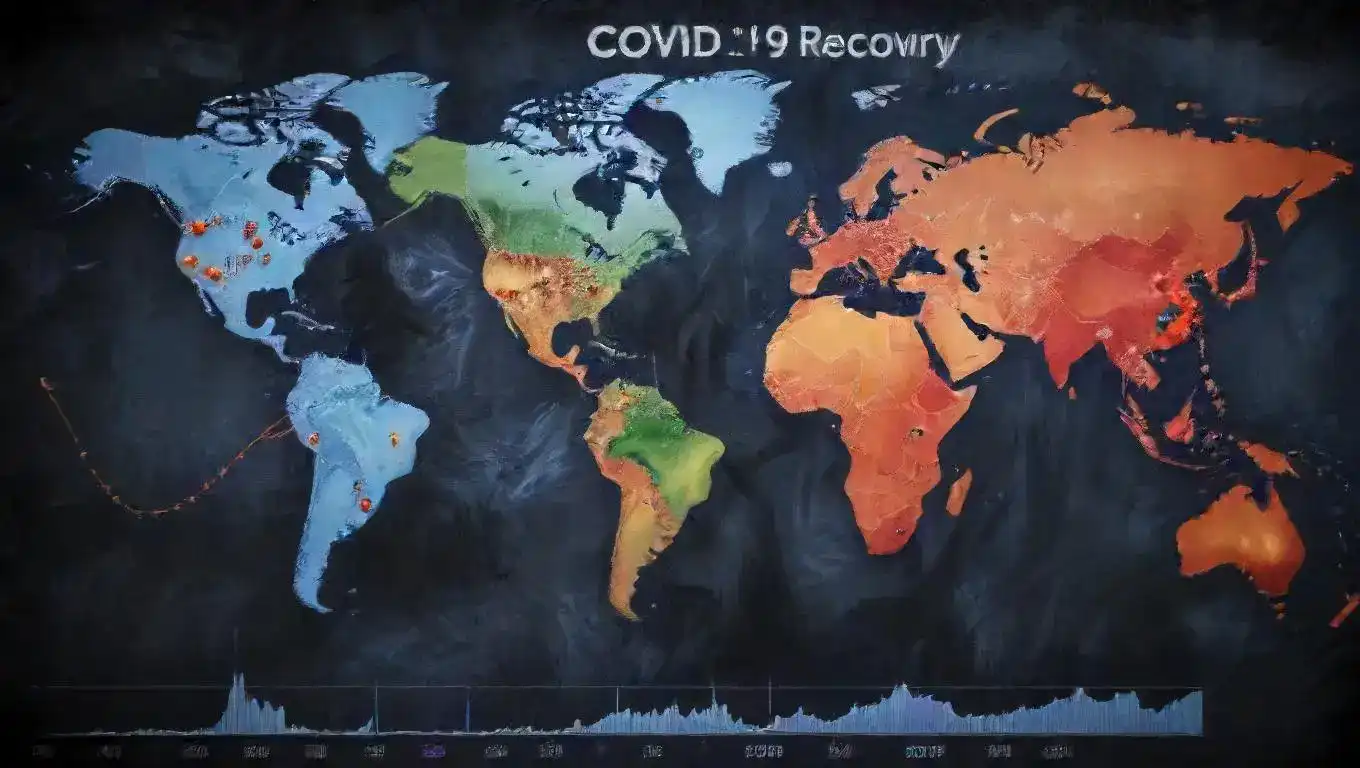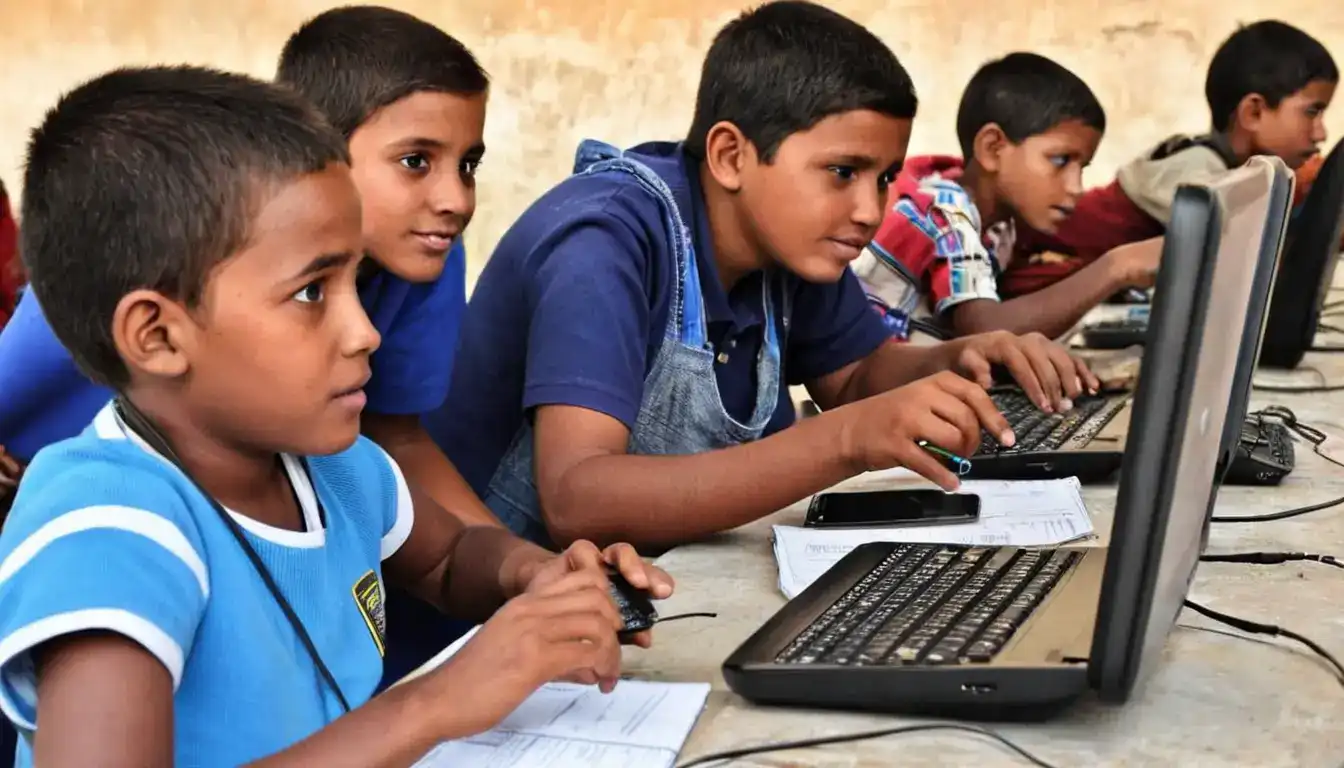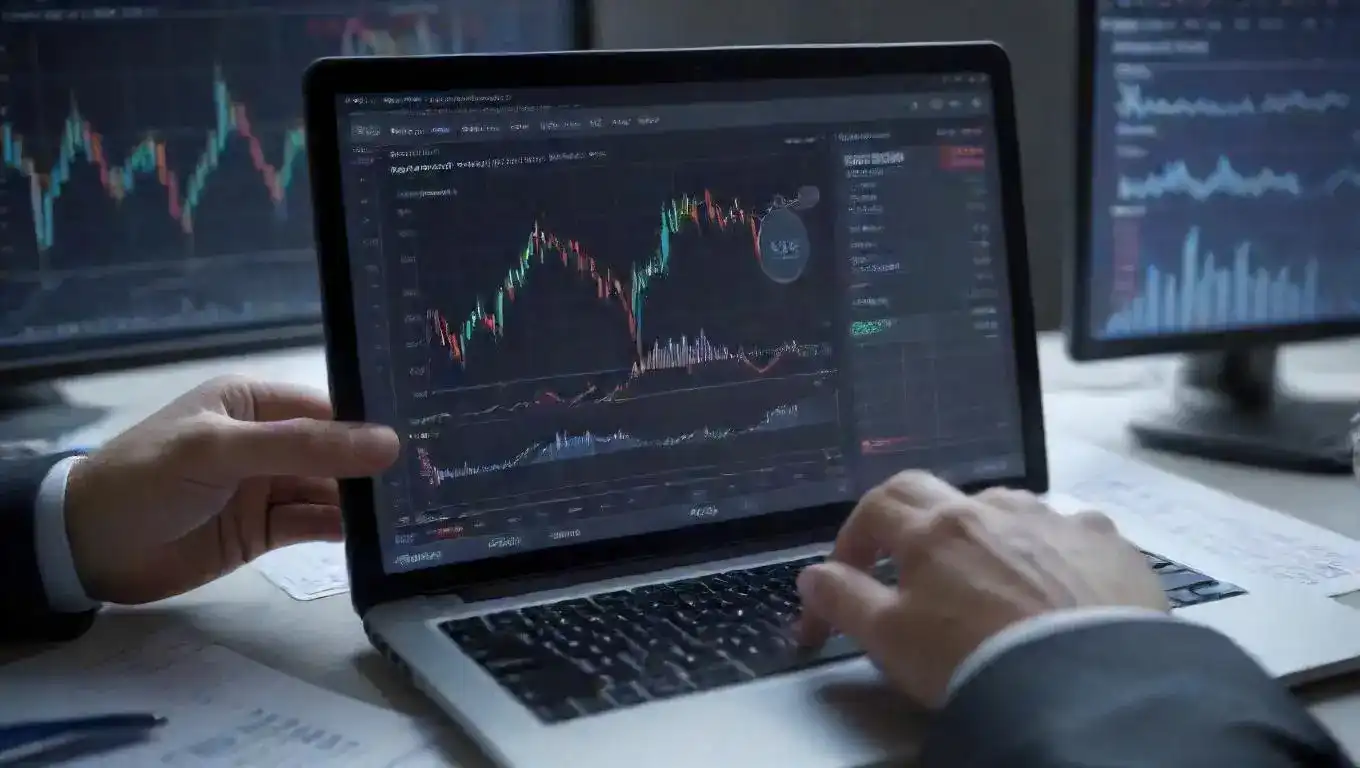The Impact of the COVID-19 Pandemic on the Global Economy: Recovery or Recession?
Emily Willis

Photo: The Impact of the COVID-19 Pandemic on the Global Economy: Recovery or Recession?
The COVID-19 pandemic has been an unprecedented global event, affecting the lives of people worldwide and significantly impacting the global economy. As countries grappled with the health crisis, economic activities came to a halt, supply chains were disrupted, and markets plunged into turmoil. Now, as the world slowly recovers, the question on everyone's mind is: What lies ahead for the global economy? Will we see a robust recovery, or are we headed towards a prolonged recession? This article explores the multifaceted impact of the pandemic, the road to economic recovery, and the potential challenges that lie ahead.
The Initial Shock and Economic Fallout
When the COVID-19 outbreak began in late 2019, the world was largely unprepared for the scale and speed at which the virus spread. Countries implemented strict lockdown measures and social distancing protocols to curb the surge in infections. While these measures were necessary for public health, they had a profound impact on economic activities.
- Market Turmoil and Recession: The initial shockwaves were felt across global financial markets. Stock markets plunged into bear market territory, with major indices recording sharp declines. The pandemic triggered a global recession, and according to the World Bank, the global economy shrank by 3.5% in 2020, marking the deepest global downturn since World War II.
- Disrupted Supply Chains: The pandemic exposed the vulnerabilities of global supply chains. Factory closures, travel restrictions, and border closures disrupted the flow of goods and services. Manufacturing and production slowed or halted entirely, particularly in industries such as automotive and electronics, which rely on complex global supply networks.
- Plummeting Demand and Business Closures: As people lost their jobs or faced reduced income, consumer demand plummeted. Non-essential businesses, including retail stores, restaurants, and entertainment venues, were forced to close their doors, leading to widespread layoffs and furloughs. Small and medium-sized enterprises (SMEs) were particularly vulnerable, with many struggling to stay afloat.
- Impact on Specific Sectors: Some sectors were hit harder than others. The tourism and hospitality industries faced unprecedented challenges due to travel restrictions and fears over contagion. Airlines, hotels, and cruise lines suffered significant losses. Similarly, the entertainment and arts sectors were devastated as concerts, festivals, and cultural events were canceled or postponed.
The Road to Recovery: Green Shoots of Hope
As countries gradually lifted restrictions and vaccination rates rose, the global economy began to show signs of recovery. Governments and central banks implemented unprecedented stimulus measures to boost economic growth and support struggling businesses and individuals. Here's a look at some of the positive signs of economic revival:
- Stimulus Packages and Monetary Policies: Governments and central banks played a crucial role in stabilizing the economy. Massive fiscal stimulus packages, including direct payments to individuals and businesses, tax breaks, and loan guarantees, provided much-needed relief. Central banks also slashed interest rates and injected liquidity into the financial system through quantitative easing.
- Resilient Financial Markets: Global financial markets have shown remarkable resilience. Stock markets have rebounded, with major indices reaching record highs. Investor confidence has returned, and the flow of capital has helped stabilize businesses and fuel economic growth.
- Adapting to the New Normal: Businesses and individuals adapted to the new reality. Many companies adopted remote work arrangements, and digital transformation accelerated. The pandemic also spurred innovation, with new business models emerging, particularly in e-commerce, online education, and digital healthcare.
- Recovery in Hard-Hit Sectors: Sectors that were initially devastated by the pandemic have begun to recover. Travel and tourism have slowly picked up, with people eager to explore the world again. The hospitality industry is witnessing a revival, and businesses are adapting to new health and safety protocols to welcome back customers.
- Rising Consumer Confidence and Spending: As restrictions eased and individuals returned to work, consumer confidence and spending rebounded. People began to dine out, travel, and engage in social activities again, boosting industries reliant on consumer discretionary spending.
Ongoing Challenges and Potential Pitfalls
While there are reasons to be optimistic, the path to a full economic recovery is fraught with challenges and uncertainties. Some of these challenges include:
- Rising Inflation and Cost of Living: The surge in inflation, driven by supply chain disruptions and rising energy prices, has eaten into household budgets. As central banks raise interest rates to curb inflation, there are concerns about the potential impact on economic growth and the risk of a recession.
- Uneven Global Recovery: The recovery has been uneven across countries and regions. Advanced economies have generally fared better due to their access to fiscal stimulus and effective vaccination campaigns. However, developing economies continue to face challenges, including limited access to vaccines, rising debt levels, and the impact of commodity price shocks.
- Labor Market Disruptions: The pandemic has led to significant shifts in the labor market. While some sectors face labor shortages and struggle to fill positions, others have yet to recover the jobs lost during the pandemic. Long-term unemployment remains a concern, and underemployment persists, particularly in sectors heavily impacted by the pandemic.
- Supply Chain Bottlenecks: Supply chain disruptions continue to impact businesses and contribute to rising prices. The pandemic has highlighted the fragility of just-in-time production models, and companies are rethinking their supply chain strategies. Reshoring and nearshoring trends may reshape global trade patterns in the coming years.
- Impact on Education and Human Capital: The pandemic has disrupted education systems worldwide, with school closures affecting millions of students. The shift to online learning has widened the digital divide, and there are concerns about the long-term impact on human capital development and economic productivity.
- Geopolitical Tensions and Trade Wars: Geopolitical tensions and trade wars, particularly between major economies, pose risks to global economic stability. Rising protectionism and the rollback of globalization could further disrupt supply chains and hinder economic growth.
Policy Responses and Strategies for a Sustainable Recovery
To address the ongoing challenges and lay the foundation for a sustainable and inclusive recovery, policymakers and governments must take proactive measures. Here are some key strategies to support a robust and equitable economic revival:
- Continued Support for Vulnerable Sectors: Governments should continue providing targeted support to sectors that continue to struggle, such as tourism, hospitality, and small businesses. This could include tax breaks, loan guarantees, and grant programs to help them weather the ongoing challenges and prevent permanent scarring in these industries.
- Investments in Education and Reskilling: The pandemic has accelerated digital transformation and highlighted the need for a resilient and adaptable workforce. Investments in education and reskilling programs are crucial to help individuals adapt to the changing nature of work and ensure they have the skills needed for the jobs of the future.
- Strengthening Healthcare Systems: The pandemic has underscored the critical importance of robust healthcare systems. Investing in healthcare infrastructure, research, and preparedness is vital to protect lives and livelihoods and build resilience against future health crises.
- Supply Chain Resilience and Trade Cooperation: Policymakers should work together to strengthen global supply chains and promote trade cooperation. This includes diversifying supply sources, developing more resilient production models, and fostering collaboration among trading partners to ensure the smooth flow of goods and services.
- Addressing Inequalities and Social Safety Nets: The pandemic has exacerbated existing social and economic inequalities. Governments should prioritize policies that address income inequality, provide social safety nets, and support vulnerable communities. This includes access to affordable housing, healthcare, and economic opportunities for all.
- Green Recovery and Sustainability: The recovery presents an opportunity to build a more sustainable and inclusive economy. Governments can promote green investments, encourage low-carbon technologies, and foster sustainable business practices to address climate change and create green jobs.
Conclusion: Navigating the Road Ahead
The COVID-19 pandemic has had far-reaching consequences, and the global economy continues to navigate uncharted waters. While there are encouraging signs of recovery, the path ahead is filled with challenges and uncertainties. The pandemic has also presented opportunities for transformation and innovation, and countries have a chance to rebuild their economies in a more sustainable, inclusive, and resilient manner.
As the world moves forward, policymakers, businesses, and individuals must adapt to the new realities and remain agile in the face of changing circumstances. By learning from the lessons of the pandemic and implementing thoughtful policies and strategies, we can foster a robust and equitable economic recovery that leaves no one behind. The road to recovery may be long, but with perseverance and collective effort, a brighter and more prosperous future is within reach.
Latest ✨
View AllArtificial Intelligence (AI) has evolved rapidly from science fiction to reality, offering immense potential but also presenting significant ethical challenges.
Emily Willis
Virtual reality (VR) and augmented reality (AR) are transforming the entertainment industry by offering immersive experiences that blur the lines between the real and virtual worlds. VR completely transports users into computer-generated environments, while AR overlays digital elements onto the real world.
Emily Willis
In today's job market, academic qualifications alone are not enough for success. Employers value soft skills such as communication, leadership, and teamwork. Educational settings provide opportunities for students to develop these skills. Strong communication skills enable effective collaboration and understanding. Presentation and public speaking skills enhance professionalism and credibility. Leadership skills involve setting goals, making decisions, and inspiring others. Teamwork skills are important for building relationships and achieving shared goals. Developing these skills in an educational environment prepares individuals for successful careers by enhancing employability and job readiness. Soft skills development is an ongoing process that promotes continuous learning and growth. By emphasizing the importance of soft skills, educational institutions empower students to succeed in a complex and interconnected world.
Emily Willis
fostering a love of reading in early childhood and provides practical tips to achieve this. It emphasizes starting early, making reading fun and interactive, integrating reading into daily activities, and addressing challenges with reluctant readers.
Emily Willis
Business
View All
August 5, 2024
The Importance of Having Insurance to Protect Yourself and Your Assetsinsurance in protecting individuals and businesses from financial losses due to unforeseen events. It explains the different types of insurance available, such as health, life, auto, homeowners, renters, disability, and liability insurance, and their benefits.
Emily Willis

August 5, 2024
How to Create Engaging Content and Convert Visitors to Customerscreating engaging content to attract and retain customers in the digital age. It provides strategies for understanding the audience, setting content goals, creating high-quality content, using storytelling and emotional connection, and optimizing content for conversions. It also covers content formats and distribution, measuring and analyzing content performance, and building relationships with influencers and user-generated content.
Emily Willis

August 4, 2024
How to Build a Strong Brand Identity for Your BusinessBuilding a strong brand identity is essential for business success as it helps differentiate you in the market, connect with your audience, and build loyalty. Key steps include understanding your target audience, defining your mission and values, developing a unique selling proposition, creating a memorable brand name and logo, choosing brand colors and typography, crafting a brand voice and messaging, ensuring a consistent brand experience, leveraging visual content.
Emily Willis
Economy
View Allchallenges and opportunities presented by economic uncertainty and explores strategies that governments and businesses can implement to mitigate risks, ensure stability, and pave the way for future success.
Read MoreGlobal inequality refers to the unequal distribution of wealth, income, and opportunities across the world, leading to economic, social, gender, and regional disparities. The consequences of this inequality are widespread, impacting social unrest, political instability, economic stagnation, and environmental degradation.
Read MoreDiscover the hidden connections that drive global stock markets. Explore stock correlations, their impact on diversification and risk, and how to calculate them. Learn how to apply this knowledge to your investment strategy and uncover secrets to making more informed decisions.
Read MoreEntertainment
View All
August 5, 2024
Music Universal Language: Connecting and Inspiring Across CulturesMusic has the power to transcend language barriers and connect people on a deep emotional level. It serves as a bridge between cultures, fostering understanding and appreciation for diversity. The universality of rhythm and melody creates a sense of unity, while the diversity of musical styles allows for exploration and creativity.
Emily Willis

August 4, 2024
Virtual Music Concerts: The Future of Live Performance?The music industry has seen significant changes in recent years, with virtual music concerts becoming a popular trend, especially due to the impact of the COVID-19 pandemic. Technological advancements have made virtual concerts more accessible and cost-effective, while also reducing the environmental impact of live events. However, challenges such as technical issues and the lack of physical presence remain. The future of virtual concerts may involve hybrid models that combine virtual and physical experiences, as well as continued technological innovation to enhance the quality of virtual performances. Building a sense of community and engagement will also be crucial for the success of virtual concerts moving forward.
Emily Willis

August 4, 2024
The Latest Music Trends, Artists Influencing Pop Culture, and How Digital Platforms Facilitate the Distribution of Music GloballyThe music industry is constantly changing due to consumer preferences, technology, and the influence of artists. Digital platforms have revolutionized music creation, distribution, and consumption, leading to genre fusion, the rise of independent artists, and collaborative projects. Influential artists like Billie Eilish, BTS, and Taylor Swift have shaped pop culture globally. Streaming services, social media, and direct-to-fan engagement have transformed music distribution. Digital platforms also promote cultural diversity and inclusivity, expand markets and revenue, and drive technological advancements. The industry is also focusing on sustainability and ethical practices. To succeed in the future, stakeholders must embrace digital transformation and champion inclusivity.
Emily Willis
Health
View AllA healthy lifestyle is crucial for enhancing overall quality of life in today's fast-paced world. It involves habits such as a nutritious diet, regular exercise, adequate sleep, stress management, and avoiding harmful substances. Benefits include improved physical health, enhanced mental well-being, increased energy levels, better sleep quality, and longevity. Implementing healthy habits gradually, staying consistent, seeking support, and monitoring progress are key steps towards a healthier lifestyle. Prioritizing a healthy lifestyle is not just about adding years to life but about adding life to years, leading to a more fulfilling and vibrant life.
Emily Willis
cultivating healthy lifestyle habits to improve overall well-being. It focuses on three pillars of well-being: nutrition, exercise, and sleep. It provides tips on how to incorporate these practices into daily routines, such as eating a variety of foods, finding enjoyable forms of exercise, and establishing a consistent sleep schedule.
Emily Willis
Heart disease is a leading cause of death globally, but early detection and prevention strategies can reduce its impact. This article discusses the importance of early detection, common risk factors, preventive measures, and lifestyle changes for heart health. Understanding heart disease, recognizing symptoms, and undergoing regular screenings are crucial. Common risk factors include high blood pressure, high cholesterol, diabetes, smoking, obesity, physical inactivity, and family history. Symptoms of heart disease include chest pain, shortness of breath, fatigue, irregular heartbeat, and swelling. Diagnostic tests and screenings include blood pressure measurement, cholesterol screening, blood glucose test, ECG, stress test, and imaging tests. Preventive measures include adopting a heart-healthy diet, regular physical activity, quitting smoking, managing stress, maintaining a healthy weight, and limiting alcohol consumption. Medications and treatment options may be necessary for individuals at high risk or diagnosed with heart disease.
Emily Willis
Trending 🔥
View All
2
3
4
5
6
7
9
10
Lifestyle
View AllSports
View AllAugust 4, 2024
The Importance of Mental Training and Psychological Strategies in Helping Athletes Reach Their Peak Performance on the Field
Read MoreAugust 5, 2024
Celebrating Sports Legends: Honoring Iconic Figures and Their Enduring Impact
Read MoreTechnology
View All
August 4, 2024
The Future of Artificial Intelligence: Opportunities and Challenges
opportunities and challenges presented by Artificial Intelligence (AI) in various sectors such as efficiency, customer experiences, healthcare, education, and economic growth. It highlights the need to address ethical considerations, job displacement, privacy issues, security risks, and regulatory challenges associated with AI.

August 4, 2024
Bridging the Digital Divide: Ensuring Everyone Has Access to Technology
we can bridge this gap and create a more inclusive digital landscape.

August 4, 2024
The Role of 5G Technology in Revolutionizing Communication
The introduction of 5G technology is set to revolutionize communication by offering faster speeds, lower latency, and increased capacity for connecting devices. This technology will impact various sectors such as healthcare, transportation, and entertainment. 5G enhances communication through faster speeds, lower latency, and increased capacity, enabling applications like remote surgery, autonomous vehicles, and high-quality streaming.

August 4, 2024
Role of Cloud Computing Technology in Modern Business
Cloud computing technology has become essential for modern businesses, offering cost efficiency, scalability, and flexibility. It enables streamlined processes, enhanced productivity, and improved collaboration among employees. Cloud computing also ensures data security, disaster recovery, and business continuity. By migrating to the cloud, businesses can streamline IT operations, enhance customer experiences, access advanced technologies, and reach a global audience. Real-world applications of cloud computing include e-commerce, healthcare, financial services, manufacturing, and education.





















